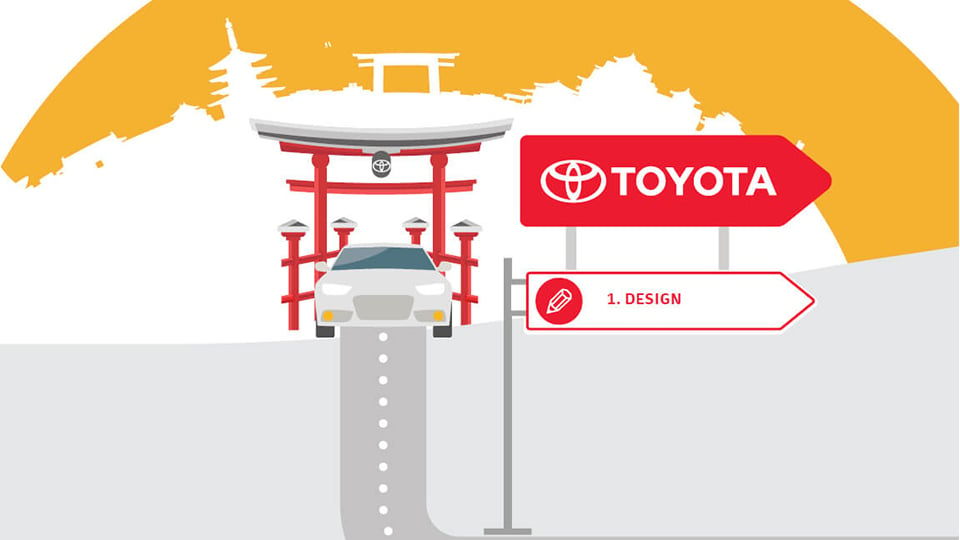Environmental impacts of vehicles and parts during their lives
Toyota has set ambitious goals for reducing the life cycle impacts of new vehicles and parts, which are described under the Toyota Environmental Challenge 2050. They are set out below to support a better understanding and evaluation of impacts and responsibilities in the different operational areas.

1. Design
Vehicle design and manufacture is undertaken by TMC and TMC subsidiaries; TNZ is a recipient of progress in these areas.



Certified life sycle analysis in vehicle design evaluates the environmental impacts of materials, manufacturing, vehicle assembly, driving, maintenance and disposal.




2. Raw materials' extraction
Reductions in resource usage through careful vehicle and part design.





3. Vehicle Manufacture
All vehicle manufacturing plants are ISO 14001 (environment) certified, and include performance targets for energy, carbon dioxide (CO2), water and waste.




4. Used Vehicles
To increase the availability of low-emission vehicles (and help overcome the current supply limitations of new cars) TNZ sources used hybrid vehicles from Japan – including plug-in hybrid electric vehicles.

5. Product planning
TNZ chooses the right vehicle mix to provide customers with environmentally responsible products.

See progress on our product mix here.

6. Shipping and logistics
TMC actively seeks opportunities to optimise parts’ storage and rationalise route distances in its international operations.

TNZ works with government agencies to minimise the risk of pests coming to New Zealand in vehicles.


7. Processing and refurbishment
TNZ’s processing and refurbishment facilities are ISO 14001 (environment) certified.




8. New Zealand distribution
TNZ’s new business model enables reductions in the freight movements of vehicles around New Zealand.


9. Marketing and sales
The TNZ marketing channels include Facebook, television commercials, print media, Instagram, billboards and public events such as Fieldays. Hybrid options are promoted in our marketing and sales.


10. Toyota and Lexus retail Stores
Toyota and Lexus outlets are environmental management systems certified under Toitū enviromark (www.toitu.co.nz) with annual audits. Projects focus on managing energy, fuel, CO2, water, waste and emergency prevention.




11. Use
PHEV charging stations are installed at corporate sites, Stores and service centres. The average carbon emissions for new vehicles sold by new vehicles is reducing all the time.

12. Servicing
All new vehicles now come with capped price servicing for four years. This helps ensure customers’ vehicles are operating with maximum efficiency.


13. End of Life
Hybrid vehicle batteries
TNZ collects Toyota and Lexus hybrid electric batteries, which we recycle at a facility in Japan.
Wheel covers
Wheel covers (which protect brake discs against corrosion during vehicle shipping) are recycled by Comspec in Christchurch and Aotearoa NZ Made in Palmerston North.
Future work
TMC and TNZ have goals of supporting a recycling-based society. TNZ has set up a vehicle end-of-life working group to progress this area and the 2050 Vision and Strategy will accelerate efforts in this area.
